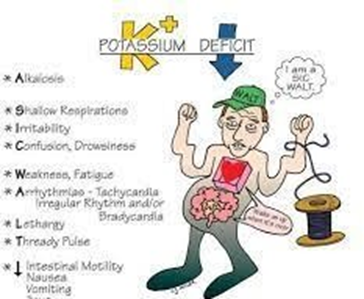Which of the following is a component of clinical decision-making that the nurse should use to make an evidence-based decision?
Concept mapping
Clinical reasoning
Clinical judgement
Critical thinking
The Correct Answer is C
- A) Concept mapping is a tool that helps in organizing and representing knowledge. It can aid in the understanding of relationships between different concepts but is not a decision-making component in itself.
- B) Clinical reasoning is the process used by practitioners to collect cues, process the information, come to an understanding of a patient situation, plan and implement interventions, evaluate outcomes, and reflect on and learn from the process. It is part of the broader decision-making process.
- C) Clinical judgement is the conclusion or enlightened opinion at which a nurse arrives following a process of observation, reflection, and analysis of observable or available information or data. It is essential for making evidence-based decisions in clinical practice.
- D) Critical thinking is the objective analysis and evaluation of an issue in order to form a judgement. It is an important skill in the decision-making process but is not a component of the decision itself.
Nursing Test Bank
Naxlex Comprehensive Predictor Exams
Related Questions
Correct Answer is D
Explanation
A. Hyperactive bowel sounds are associated with hyperkalemia, not hypokalemia.
B. Hypertension is not typically associated with hypokalemia. In fact, hypokalemia is more likely to be associated with hypotension.
C. Cerebral edema is not a common manifestation of hypokalemia; it is more commonly associated with conditions like hyponatremia.
D. Muscle weakness is a classic manifestation of hypokalemia. Potassium is crucial for proper muscle function, and a deficiency can lead to weakness.

Correct Answer is C
Explanation
A. While this act supports a patient's right to make decisions about their medical care, it doesn't grant the family the right to change the living will.
B. Changes to a living will should be discussed with the person who created it or someone legally designated to make those decisions, such as a durable power of attorney.
C. The living will is a legal document that outlines the client's wishes regarding medical treatment in specific situations.
D. This document designates someone to make healthcare decisions if the client is unable to do so but doesn't grant the authority to cancel the living will.
Whether you are a student looking to ace your exams or a practicing nurse seeking to enhance your expertise , our nursing education contents will empower you with the confidence and competence to make a difference in the lives of patients and become a respected leader in the healthcare field.
Visit Naxlex, invest in your future and unlock endless possibilities with our unparalleled nursing education contents today
Report Wrong Answer on the Current Question
Do you disagree with the answer? If yes, what is your expected answer? Explain.
Kindly be descriptive with the issue you are facing.
